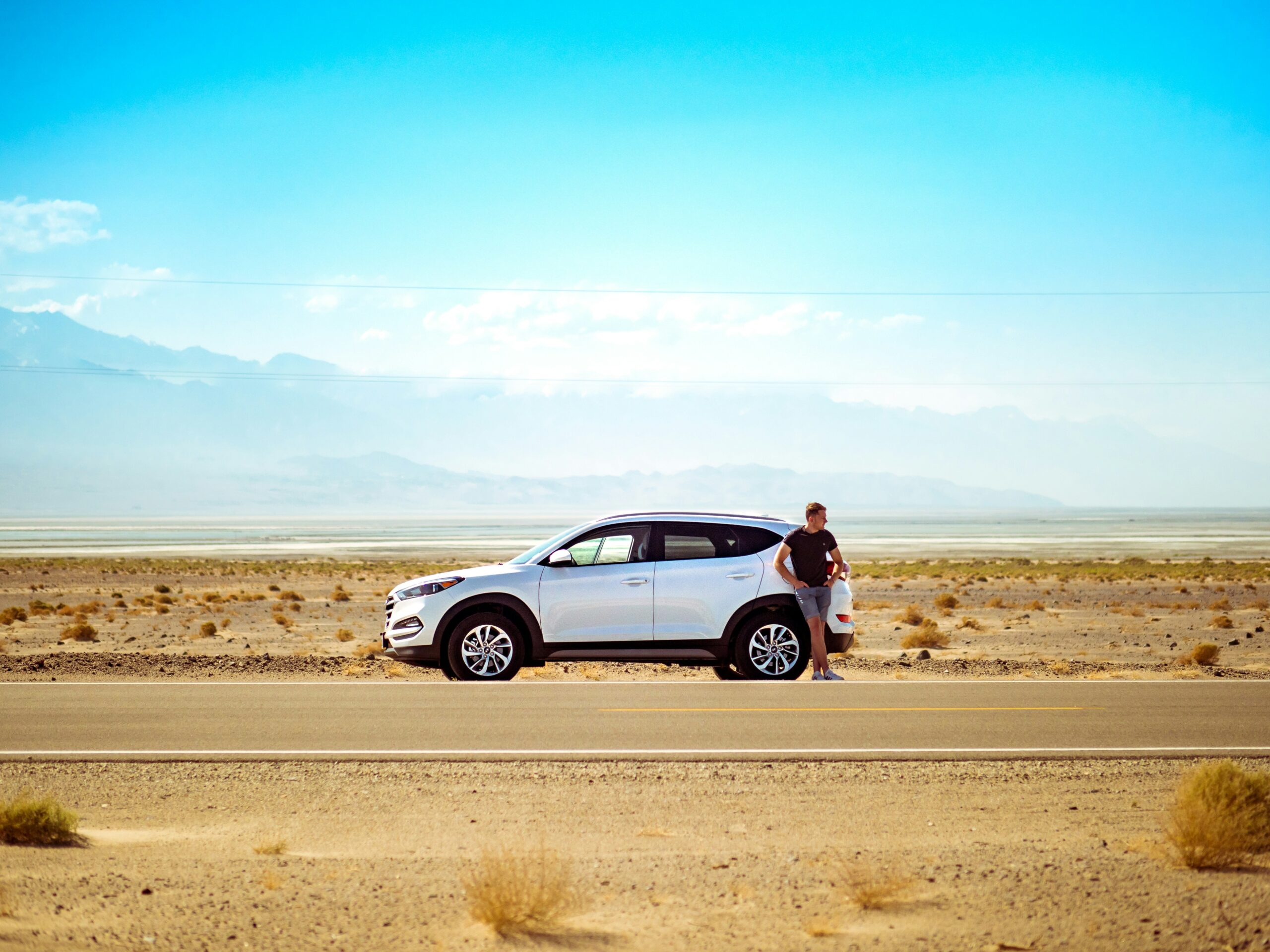When your car insurance is up for renewal, you’ll receive a notice from your insurer with your updated rate. All you need to do to renew is make a payment.
In most cases, renewal is more or less automatic—but letting your policy auto-renew could mean missing out on hundreds of dollars in car insurance savings.
Most car insurance policies auto-renew
Auto insurance policy terms last for six or 12 months—and most are set to auto-renew. Here’s a breakdown of how the auto-renewal process generally works:
- One month before renewal: You’ll receive a notice via email or mail from your car insurance company reminding you about the renewal.
- At renewal date: Review the new policy document, including declarations page and rate, to be sure you’re still happy with your policy and car insurance premium. You may need to sign off on your personal information before the auto-renew completes. Then, your payment will process automatically before the expiration date.
- After renewal: Replace the old insurance card in your wallet or glove box with the new one.
If your policy is due to auto-renew, and you’re comfortable with the rate, all you need to do is make a payment to renew your coverage. Auto-renewal is beneficial for many drivers, and can help you avoid a lapse in car insurance coverage. However, it may not be the best option available, and could be costing you more than you think.
Auto-renewals are easy—but they could trap you into a higher rate
Automatic renewals are hassle-free, but they can also mean that you may not notice rising car insurance rates, which means you’re missing out on potential savings.
When you get your renewal notice, take a moment to check your current policy’s insurance costs. If your rate has increased, shop around and pull free car insurance quotes from other providers to ensure you’re always paying the lowest rate.
To help you get started, Jerry has gathered average monthly rates for some of the cheapest providers in the nation.
| Insurance company | Minimum coverage | Full coverage |
|---|---|---|
| Anchor General | $50 | $167 |
| Madison Mutual | $59 | $140 |
| Travelers | $59 | $141 |
| Nationwide | $61 | $155 |
| Clearcover | $65 | $130 |
| Mercury Auto | $74 | $146 |
If you don’t see your desired insurer on the list, try using the Jerry app. With Jerry, drivers can build their account and run quotes from dozens of providers tailored to their specific driver profile. This way, you’re always sure you’re receiving the best rates possible—either with your current provider, or another insurer.
Learn More: How to get same day car insurance you can trust
Car insurance non-renewal vs. cancellation
Non-renewal happens at the end of your policy term if your insurance company chooses not to continue offering you coverage. On the other hand, cancellation can happen at any time in the policy term and can be initiated by you or your insurer.
A non-renewal occurs if your insurance company chooses not to renew your policy at the end of your policy term.
Most states require insurers to notify you of a non-renewal ahead of time so you can get the proper coverage in place before your policy closes.
Common reasons for nonrenewal include:
- Having too many risk factors on your record, like driving violations or accidents
- Failure to pay insurance premiums
- Missed insurance grace periods
- Providing false information to an insurance agent
- License suspensions or revocations
- Medical issues that make driving dangerous
Either you or your insurance provider can cancel your policy at any time during your policy term.
If you choose to cancel your policy in the middle of a policy period, you may receive a prorated refund for any prepaid premiums. But if your insurer cancels your policy, you may face difficulties in obtaining coverage elsewhere and could be charged a penalty.
Your insurance company can only cancel your policy for specific reasons, such as:
- Suspended license
- Non-payment of premiums
- Misrepresentation
- Fraud
Learn More: Will my new insurance company cancel my old insurance?
In some cases, you may choose not to renew your policy
It’s perfectly normal for a driver to choose not to renew their policy and switch to another company. Most people switch because the insurance price went up or they didn’t like the service provided. Other reasons may include:
- Your credit score went up
- You want a type of insurance that’s not available with your current company
- You want discounts that aren’t available with your current company
Regardless of whether you or your provider choose to close your policy, it’s important to always line your expiration date up with the start date of your new car insurance policy. If your existing policy ends before your new insurance coverage starts, you will be uninsured, and your rates may increase at your next renewal as the result of a lapse.
A lapse in coverage can lead to higher rates
Depending on how long you’ve been without coverage, you may be able to ask your insurer for a policy reinstatement.
Either way, when you do regain coverage, you may see higher than average rates due to your temporary lack of insurance. Take a look at some of the average rates drivers pay for insurance after a coverage lapse.
| Violation | Average coverage cost | Total rate increase (%) |
|---|---|---|
| Coverage lapse | $146 | 21% |
While it’s best to avoid a coverage lapse (as it’ll impact your insurance history), you can still find lower-than-average rates from these providers with Jerry:
| Insurance company | Minimum coverage cost | Full coverage cost |
|---|---|---|
| Clearcover | $54 | $118 |
| Nationwide | $62 | $136 |
| Safeco | $67 | $145 |
| Madison Mutual | $68 | $115 |
| Travelers | $69 | $140 |
Other reasons why your car insurance might go up at renewal
our driving history directly impacts your rate hikes. If you’re surprised by a higher rate at your policy renewal, see if one of these reasons is the culprit:
- You recently filed a claim
- You caused an accident
- You were ticketed for a violation
On average, drivers in the US pay approximately $121 per month for coverage. This breaks down to $77 per month for minimum policies, and $165 per month for full coverage options. But having violations on your record can change these costs, making your rates rise.
Here are some of the monthly average rates drivers with different violations pay for coverage in the US:
| Violation | Average coverage cost | Total rate increase (%) |
|---|---|---|
| Failure to show documents | $183 | 51% |
| Driving on suspended license | $185 | 53% |
| DUI | $202 | 67% |
| Speeding 21+ MPH | $236 | 95% |
Companies will check your driving record every single time your policy is up for renewal. If you’ve gotten more risky, your rates will rise. Here are the sources that companies consult when setting your rate:
- CLUE reports: Your Comprehensive Loss Underwriting Exchange (CLUE) report lists any car insurance claims from the past seven years. Recent claims on your account count as risk factors that can drive up insurance rates.
- MVRs: Your Motor Vehicle Report (MVR) lists any traffic violations, car accidents, driver’s license points or suspensions, or DUI convictions on your driving record. Any of these can lead to higher premiums.
- Vehicle mileage: Your insurer will check the mileage of your insured vehicle and may adjust your rates based on their findings.
- Discount eligibility: As part of the renewal process, your insurer will check your eligibility for various car insurance discounts, such as the no-claims bonus—which could raise or lower your rates.
If your rate is much higher than expected, it’s possible that a mistake was made. You should pull your own driver records to check them for mistakes. If you find one, reach out to your local DMV to correct them and then follow up with your insurance company.
However, it’s not only violations that can cause your premiums to rise. You may also see your new rates go up if you moved to a new ZIP code with a higher risk profile, or added a driver or vehicle to your auto policy.
Expiring rebates or incentives can also cause your insurance costs to go up—and qualifying for new rebates and incentives can make your rates go down.
| State | Rebate or incentive | What it includes |
|---|---|---|
| Alabama | Rebate | • Discounted time-of-use rate for those who lease or own an EV/plug-in hybrid |
| Arizona | Rebate/Incentive | • Smart Charge Program: $250 rebate for purchasing a Level 2 EV charging station + $85 annual creditSalt River • Project: $250 rebate for purchasing a Level 2 EV charging station + $50 credit for charging at certain times of day • Tucson Electric Power: $500 rebate for purchasing a Level 2 EV charging station • Mojave Electric Cooperative: $1,000 rebate for purchasing a networked Level 2 charging station |
| Arkansas | Rebate/Incentive | • Entergy Electric eTech: $250 rebate for purchasing a Level 2 EV charging station • Southwestern Electric Power Company: $250 rebate for ENERGY STAR-certified Level 2 EV charging station • Carroll Electric Cooperative: $30 credit on power bill + $250 rebate for purchasing a Level 2 EV charging station |
| California | Rebate/Incentive | • California offers several rebates and incentives through different programs, with some savings of up to $4,000+ |
| Colorado | Rebates/Incentives | • Vehicle Exchange Colorado: $6,000 credit toward purchasing an EV or PHEV • Black Hills Energy: $500 rebate for installing a Level 2 EV charging station • Gunnison County Electric Association: $1,250 rebate for those who sign up for time-of-use rates + 25% off the purchase of an EV up to $1,000 • Holy Cross Energy: Gives up to 2 free Level 2 ChargePoint chargers •San Isabel Electric Association: $500 rebate for those who purchase a qualified EV • Xcel Energy: $5,500 rebate for drivers who lease/purchase a new EV + $50 bill credit for charging during off-peak hours |
| Connecticut | Rebate/Incentive | • Up to $7,500 in rebates depending on whether you own a new/used EV, PHEV, or FCEV • Eversource: $500 rebate for purchasing a Level 2 EV charging station + $200 for sign up • Norwich Public Utilities: $5,000 incentive to install a qualified EV charging station • United Illuminating: $1,000 rebate for installing a Level 2 EV charging station + $100 for establishing a charging schedule |
| Delaware | Rebate | • $1,000-$2,500 for purchasing/leasing a new EV •$100 bill credit rebate + $5 monthly bill credit for those who don’t charge their EV during peak hours |
| District of Columbia | Incentives | • Tax credit for 50% of costs associated with installing a residential charging station |
| Florida | Rebate | • Duke Energy: Monthly $10 bill credit for customers who charge their EV with a Level 2 charging station • Jacksonville Electric Authority: Up to $300 for upgrading your home’s electrical system to support an EV charging station • Kissimmee Utility Authority: $100 for EV drivers + $100 for installing a Level 2 charging station • Orlando Utilities Commission: $200 for customers who purchase/lease a new EV + $50 for anyone test driving an EV |
| Georgia | Incentive | • $250 incentive to install an ENERGY STAR-certified Level 2 charging station |
| Idaho | Incentive | • All EVs and plug-in hybrids are exempt from state-required maintenance programs and inspections |
| Illinois | Rebate | • $4,000 for vehicles purchased between July 2022 and June 2026 • $2,000 for vehicles purchased between July 2026 and June 2027 • $1,000 for vehicles purchased after July 2028 |
| Indiana | Rebate/Incentive | •Indiana Michigan Power: $500 for signing up, as long as you have a new or existing Level 2 charger •Applied Energy Services: $250 + $50 per year for participation • Duke Energy: Up to $200 in annual incentives for customers who charge during off-peak times |
| Iowa | Rebate | • Residents must purchase/install a qualifying Level 2 charging station; amount not disclosed |
| Kansas | Rebate | • Up to $2,400 per qualified vehicle • $250 rebate for purchasing a Level 2 EV charger + $250 for signing up |
| Kentucky | N/A | N/A |
| Louisiana | Rebate | • $250 for installing Level 2 EV chargers or ENERGY STAR-certified chargers |
| Maine | Rebate | • Up to $7,500 for purchasing/leasing a new EVUp to • $3,500 for plug-in hybrids**Amounts vary depending on income |
| Maryland | Rebate/Incentive | • $3,000 tax credit for customers who purchase/lease EVs under $50,000 • Maryland Energy Administration: $700 for installing a qualified EV charging station • Potomac Edison: Save up to 2 cents per kW hour + $300 for installing a Level 2 home charger • Baltimore Gas and Electric Company: $50 annual credit for installing a Level 2 charger • Pepco: $50 gift card for buying/installing a qualifying Level 2 EV charging station |
| Massachusetts | Rebate | • Massachusetts Department of Energy Resources: $5,000 rebate for those who purchase/lease EVs • Eversource: Monthly $10 discount for residents who charge during off-peak hours • Braintree Electric Light Department: $250 discount for purchasing a qualified Level 2 EV charging station • Home Energy Loss Prevention Services: Free and discounted Level 2 EV charging station • National Grid: Up to $1,400 for installing a Level 2 EV charging station + $50 and $20 annual bill credit for pausing charging during peak hours • Shrewsbury Electric and Cable Operations: $1,000 for purchasing a new or used EV |
| Michigan | Rebate/Incentives | • Michigan residents can earn up to $1,000 for purchasing a networked Level 2 EV charging station and up to $1,500 for purchasing/leasing a new EV |
| Minnesota | Rebate/Incentive | • Drivers in Minnesota can get a one-time E-ZPass account credit with a $250 incentive for EVs purchased between November 2019 and October 2025 • Several other incentive programs off up to $500 for installing a Level 2 EV charging station and discounts of up to $250 on tolls |
| Mississippi | Rebate | • Up to $1,250 for new/leased EVs$250 for installing Level 2 EV charger |
| Missouri | Rebate | • Evergy: $500 to purchase/install a Level 2 EV charging station • Kirkwood Electric: $300 for installing a Level 2 EV charging station |
| Montana | N/A | N/A |
| Nebraska | Rebate | • Up to $500 for installing a qualifying Level 2 charging station • Additional $500 to cover pre-wiring costs for installing a new EV charging station •Additional $500 for wiring upgrades |
| Nevada | Rebate | • $500 for installing a Level 2 charger (reduced to $250 for not installing) |
| New Hampshire | Rebate/Incentive | • Up to $1,000 for purchasing/leasing a new EV • $300 charger incentive for up to two installations per household • $300 rebate for off-peak charging |
| New Jersey | Rebate/Incentive | • Sales + tax exemption for new/leased zero-emission vehicles • Charge Up New Jersey Program: Up to $4,000 for purchasing/leasing new EVs and plug-in hybrids • PSE&G: Bill credit of up to $1,500 for installing a Level 2 EV charger • Atlantic City Electric: Up to $1,000 for installing a Level 2 EV charging station |
| New Mexico | Rebate | • Powering New Mexico: $500 credit for installing Level 2 EV charging station • El Paso Electric: $500 rebate for installing Level 2 ENERGY STAR-certified EV charging station ($2,300 for low-income customers) • Xcel Energy: $2,500 rebate for low-income customers + $500 for dedicated electrical circuits for Level 2 charging stations + $50 annual credit to charge during off-peak times |
| New York | Rebate | • Up to $2,000 for purchasing/leasing new EV • Central Hudson Gas & Electric: Discounts for charging during particular times of day • ConEdison: $25 3-month bonus for each EV or charging station • Orange & Rockland Utilities: Discount on electricity rates for off-peak charging • National Grid: Time-of-use rate for those who lease/own an EV |
| North Carolina | Rebate | • Up to $500 for drivers wh purchase a qualified Level 2 EV charging station with different programs |
| North Dakota | N/A | N/A |
| Ohio | Rebate | • Up to $250 to purchase/install a Level 2 EV charging station |
| Oklahoma | Rebate | • Oklahoma Electric Cooperative: $300 for owning an EV and having a Level 2 EV charging station to charge on off-peak hours • Public Service Company of Oklahoma: $250 for installing an ENERGY STAR-certified Level 2 charging station |
| Oregon | Rebate/Incentive | • Up to $1,000 in rebates and $5,000 in incentives for upgrading electrical panels and purchasing a Level 2 EV charging station • Low-income families may qualify for up to $7,500 with the Clean Vehicle Rebate Program |
| Pennsylvania | Rebate | • Pennsylvania Department of Environmental Protection: $2,000 on new/pre-owned EVs • PECO: $50 for purchasing a qualifying EV • Duquesne Light Company: $50 bill credit to purchase/lease an EV |
| Rhode Island | Rebate | • Up to $1,500 to buy/lease an EV or plug-in hybrid |
| South Carolina | Rebate | • Up to $250 to purchase qualified Level 2 EV charging station |
| South Dakota | Rebate | • Up to $500 for customers installing an EV charger from approved vendors |
| Tennessee | Rebate | • Up to $400 to purchase/install a Level 2 EV charging station |
| Texas | Rebate | • Texas residents can earn up to $1,200 in rebates with specific programs to install a new • Level 2 EV charging stationUp to $2,500 for buying an EV |
| Utah | Rebate | • Up to 75% of charger costs are covered when purchasing a Level 2 EV charger |
| Vermont | Incentive | • Covers up to 25% of upfront costs for low-income families buying an EV, up to $5,000 • Up to $4,000 for state residents who buy/lease a new EV • Virginia residents may also qualify for several other rebate programs, including the Burlington Electric Department and Green Mountain Power |
| Virginia | Rebate | • Dominon Energy: $40 annual payment for enrollment + installed and maintained Level 2 EV charging station for fixed monthly rate • Appalachian Power Company: Time-of-use rate for those who own an EV • Rappahannock Electric Cooperative: $7 monthly bill credit for enrolling in pilot program • Danville Utilities: $200 for purchasing/installing a Level 2 EV charging station |
| Washington | Rebate | • Until July 2025, residents pay no sales tax on the first $15,000 for EV purchases • Used EV owners pay no tax for cars priced up to $16,000 |
| West Virginia | Rebate | • Up to $500 for purchasing/installing a Level 2 EV charging station |
| Wisconsin | Rebate | • Wisconsin residents can earn up to $800 with specific programs for installing a Level 2 charging station; some may even provide free installation |
| Wyoming | Rebate | • Up to $500 to purchase an install a Level 2 charging station |
Policy up for renewal? Don’t renew, re-shop!
Instead of automatically accepting your car insurance renewal, re-shop it. It’s always better to re-shop your car insurance plan than renew without checking for lower rates. Here’s how to re-shop successfully:
- Download the Jerry app: With Jerry, reshopping is automatic, and you’ll always be able to review your quotes before settling on the best plan for you.
- Adjust your coverage: Renewal is a great time to reevaluate your coverage limits and add-ons. Consider raising your deductibles or adding optional types of car insurance like roadside assistance.
- Check for discounts: Other insurers might have better discounts, such as competitive auto and homeowners insurance bundling discounts or good student discounts, that could lower your premium amount.
- Don’t cancel without a new policy set up: If you choose the cancellation route, be sure to compare car insurance quotes in advance of your renewal date and set up your new insurance before you cancel the old policy.
What if I don’t find a lower rate?
Congratulations! If you’re not able to find a cheaper policy online, your renewal rate is likely the best option for you.
FAQ
-
What does auto insurance renewal mean?
-
What is the average cost of car insurance renewal?
-
How often do you need to renew your car insurance?
-
How can I lower my car insurance bill?
-
Why do people need car insurance?
-
Why would an insurance company refuse to renew?

Bonnie Stinson is an insurance writer with 8+ years of experience as a content writer. They specialize in making complex topics like insurance and technology easy to understand. Bonnie has written over 1,300 articles to help people become confident car owners, from how to choose the right car and build a car insurance policy to dealing with stressful situations like car accidents and unexpected repairs. Before joining Jerry’s editorial team, Bonnie worked as a digital media strategist and user experience researcher, producing content for Furnishr, STACKEDD Magazine, InfinityCore Health, and the global non-profit Giraffe Heroes.

Kianna Walpole is an insurance writer and editor with a comprehensive background in consumer behavior and online publishing. With experience in car insurance, maintenance, and repair, she is dedicated to building informative content that helps customers reduce costs while achieving the best service. Prior to joining the Jerry editorial team, Kianna worked as a junior editor in the content marketing industry, using consumer data and key insights to create and edit content for an array of large-scale clients in the real estate, cybersecurity, and healthcare industries.






